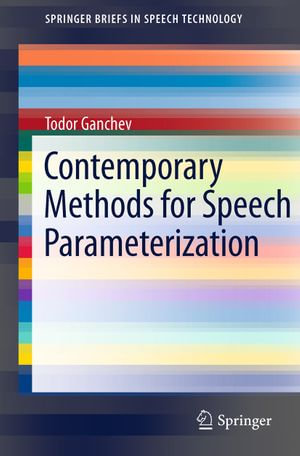
At a Glance
eText
$84.99
or
Instant online reading in your Booktopia eTextbook Library *
Why choose an eTextbook?
Instant Access *
Purchase and read your book immediately
Read Aloud
Listen and follow along as Bookshelf reads to you
Study Tools
Built-in study tools like highlights and more
* eTextbooks are not downloadable to your eReader or an app and can be accessed via web browsers only. You must be connected to the internet and have no technical issues with your device or browser that could prevent the eTextbook from operating.
ISBN: 9781441984470
ISBN-10: 144198447X
Series: SpringerBriefs in Speech Technology
Published: 10th August 2011
Format: ePUB
Language: English
Publisher: Springer Nature
You Can Find This eBook In
This product is categorised by
- Non-FictionComputing & I.T.Computer ScienceArtificial IntelligenceNatural Language & Machine Translation
- Non-FictionComputing & I.T.Operating Systems
- Non-FictionComputing & I.T.Computer ScienceAudio Processing
- Non-FictionEngineering & TechnologyElectronics & Communications EngineeringElectronics Engineering
- Non-FictionEngineering & TechnologyTechnology in GeneralEngineering in General
- Non-FictionEngineering & TechnologyOther Technologies & Applied SciencesApplied OpticsImaging Systems & Technology
- Non-FictionComputing & I.T.Computer ScienceHuman-Computer InteractionUser Interface Design & Usability
- Non-FictionComputing & I.T.Computer ScienceImage Processing
- Non-FictionComputing & I.T.Computer ScienceDigital Signal Processing (DSP)
























